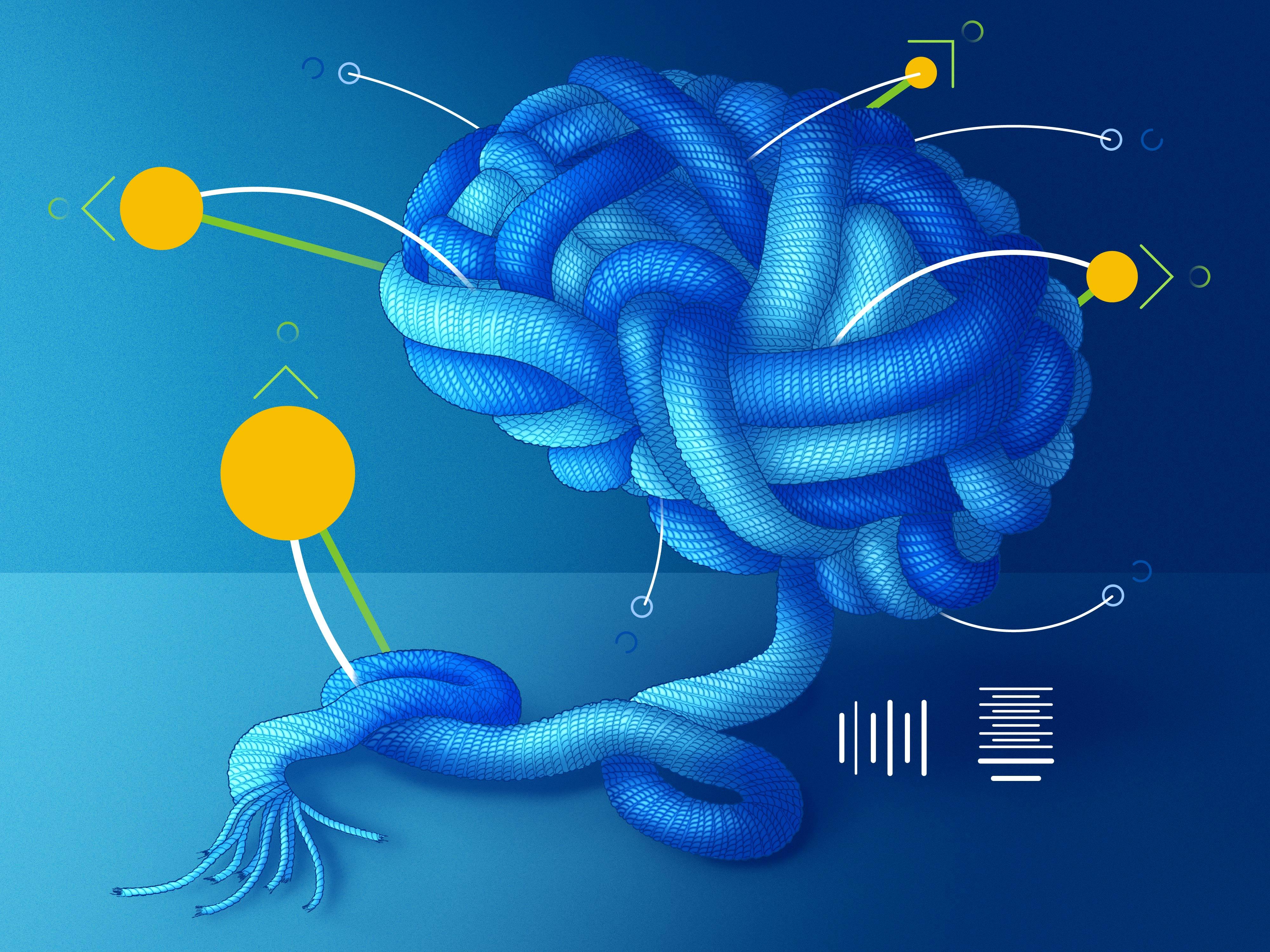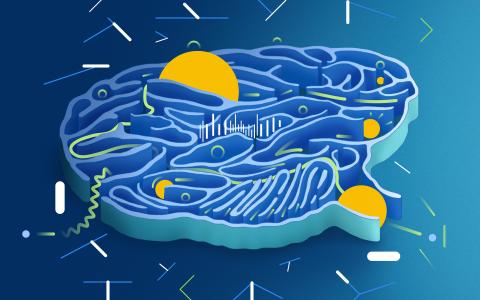
How does music impact the brain? Neuroscientists explain
Music surrounds us. From the nursery rhymes we hear as children, to the songs we love as teenagers. We listen to music at weddings, hear it in adverts on TV and radio, and experience it in films. Music might give us chills, make us dance, or even move us to tears.
It is present in every known culture throughout human history, and its effects on the brain are widespread.
We asked leading neuroscientists and previous SWC speakers, ‘What impact does music have on the brain?’. In this article, they reflect on its role in bonding social groups, its influence on our emotions and its potential as therapy for neurodegenerative disorders.
Society and identity
"There is a great book by McNeill called Keeping Together in Time: Dance and Drill in Human History and he talks about the ways in which music gets people to physically coordinate, which creates a sense of psychological coordination, which creates shared identity.
Whether it is clapping together or singing together, it has a profound impact on creating identities. There has since been a whole literature on choirs and what people call embodied cognition, tapping fingers together, coordinating in various ways. Music is a fantastic way of creating groups and group solidarity.
There are also many other dimensions to music. Music has symbolic value because songs have social meanings, which bind people together. Every group has its anthem and a group without an anthem isn’t really a group.
Years ago, we were doing research on parades in Northern Ireland and the role of the drum is so important in these marching bands. It is important partly because you march in step and the drum beat coordinates. But also the drum beat drowns out anything else, anything from outside, so your whole sense of the world becomes the world of the group. It is hard to think outside the group, you can’t hear things outside the group. It creates a universe that is filled by the group, and again I think that is very powerful.
So I think there are a plethora of ways in which music is central to the formation and expression of shared identities."
Professor Stephen Reicher, University of St Andrews
"Music is a very interesting societal phenomenon. For me, it is almost like smell. People are aware that smell can evoke very strong emotions. I think music does a very similar thing.
But music and rhythms also evoke movement. It’s somehow very hard for us to resist moving to a beat. I’d love to understand why that is. I personally love dancing, and think music allows us to connect with the environment and with other people through movement in a special way. That makes music quite unique as a phenomenon in the world. "
Dr Alice Mosberger, Columbia University
“That is a big question. Just listening to music has positive benefits, as it’s enjoyable. Music originated as a social practice. Music is probably there because it synchronises our physiology.
There are a couple of papers out there showing that drumming – being in a drum circle in the park – will put your brains in sync and a similar thing seems to happen with singing. This physiological synchrony is the glue of human society.”
Professor Michael Platt, University of Pennsylvania
"Music doesn’t really truly serve any purpose aside from presumably some form of social bonding! For some reason, it is pleasurable when people listen to music. Certain types of beats or motifs in Western culture are very different to Eastern culture and there’s also been a broad evolution of music across the ages from classical to modern.
Why does music exist and why do we enjoy it so much? These are interesting questions and a student in my lab has started studying how people respond to certain beats and tones and styles of music. We are finding different parts of the brain respond differently and that you can reliably decode neural activity to predict what genre of music someone is listening to."
Dr Ziv Williams, Harvard University
Rhythm
"Music interacts with rhythms in the brain so you can change oscillations by listening to music. Like any sensory input, music has actions on the brain.
Music is also linked to emotional associations. If you experienced a particular piece of music in an emotionally positive or negative situation then you will learn associations and like or dislike this music. Which music we like is very experience-dependent and it is very variable between individuals."
Professor Tatiana Korotkova, Institute of Physiology, University of Cologne
“Many animal behaviours are rhythmic, and so is brain activity. For example, rats’ footsteps and hippocampal rhythms both occur around eight times per second. We’ve shown that these rhythms can sync up when the hippocampus is needed to drive behaviour. Music may tap into these primitive rhythmic networks, influencing how we move and feel.”

Speech vs song
"Timing and frequency mean everything in music, and they’re just as critical in language. Speech has a rhythm. Humans typically speak at around 3Hz, or the number of syllables that we deploy every second. Birds also sing at around 3Hz, but interestingly birds breathe between every syllable using some of the fastest muscles ever described.
When we speak, we’re essentially singing. Pitch, rhythm, and emotional tone all blur the line between speech and music. Pitch can convey emphasis or emotional valence. So yes, music and language are deeply entwined – in both humans and birds."
Professor Michael A. Long, NYU.
"Humans make music - it's not speech and it's not animal vocalisation - it's something special.
I have a colleague who's a computational neuroscientist, Michael Lewicki, who wrote a really fascinating analytical study about 20 years ago. He argued that speech and music exploit pre-adaptation of our auditory system. He proposes that our auditory systems evolved to discriminate environmental sounds on the one hand, and animal vocalisations on the other. In the middle, there is this unexploited sweet spot - that's where there is music and speech.
Speech is not like most other animal vocalisations, which tend to be tonal. Our speech is ‘broadband’ – that is, it has a range of frequencies, and while vowels are somewhat tonal, consonants are very noisy. And similarly, Mike maintained that music, especially when you add percussive elements, has dual qualities that are like speech.
The ability to produce and perceive music is a very special capacity that we've, in a cognitive sense, taken advantage of, which I think is quite cool."
Richard Mooney, Professor at the Duke University School of Medicine
Mood and emotions
"Music holds a special place in my life. I'm constantly immersed in it, and I can't imagine my life without it. For me, music serves a dual purpose. On one hand, I select music that aligns with my current mood, offering a soundtrack that resonates with my ongoing emotions. In a way it’s a diagnostic test: if I’m listening to dark music for a few days, I realise that I may need a break, which helps prevent burn out!
On the other hand, I also use music as a tool to influence my mood or energy levels. For instance, when I was working on some student coursework yesterday and needed a pick-me-up, I turned to upbeat tracks from the Red Hot Chili Peppers to inject some energy into my work session.
I recently had a conversation about this with Andy Jackson, a neuroscientist in Newcastle, during a conference, where we discussed music as a form of "neuro-hacking." We both appreciate how music can instantly shift one's emotional state, whether it's lifting spirits, decompressing after a long day, or even channelling anger.
Music has a profound impact on our lives, often underestimated by many. It's a simple yet effective way to influence mood and productivity, particularly in the context of long-term endeavours like scientific research. "
Dr Juan Alvaro Gallego, Imperial College London
“Music is the most wonderful thing there is for the brain! Good music puts you in the right mood. There is a quote by a music critic who said the music you listen to as a teenager is the music you care about for the rest of your life.
I’ve been thinking about this a lot and the idea I came up with is that when you are an adolescent, you have many different hormones being released and these also modulate memory. I think the overflow of hormones stabilises these teen memories and consolidates them to a degree that doesn’t typically happen later in life.”
Professor Joseph LeDoux, New York University
"Music causes dopamine release! I think music is a really good example of the two things that dopamine does: expectations of good things, and the encoding of surprising things.
I have strong memories of my parents taking me to classical music concerts when I was a child, and the way they would make it more enjoyable for me was by playing the pieces beforehand so that I could get to know the piece and predict how it would go. On the other hand, it’s often the surprising bits of music, the chord sequences that deviate or don’t go the way you expect them to, that I gravitate towards."
Dr Mark Walton, University of Oxford
“I believe a love for music and a drive to seek it out seems to be instinctive for humans, particularly for kids. It affects our emotions in rewarding ways, and has been shown to reduce stress.”
Dr Dominic Evans, Max Planck Institute for Brain Research (Frankfurt am Main)
"This is a subject I often ponder. The influence of music on our emotions is profound. Upon listening to music, we experience an almost immediate shift in our emotional state, a process seemingly beyond our conscious control. Isn't that quite fascinating?
While communicating, I would need to say something quite extreme to evoke strong feelings of happiness or upset in you. Yet, music can instantly induce these emotions as we resonate with its rhythms and melodies. This capacity is truly remarkable. Your emotions can transform within the first few seconds of hearing certain musical pieces. What other experiences have the power to alter your emotional state so swiftly? I believe the potential of music therapy is vast and deserves further investigation."
Therapy
"As a neurologist, one evidence I see is that music can serve as important therapy for Parkinson's disease. It's interesting because people with Parkinson's often have a deficit in how their basal ganglia automates things. So if you stand next to them and say ‘March, march, march,’ they will march well. But if you stand behind them and simply tell them to take 10 steps, their internally generated steps look very erratic.
If there's a musical tone with a beat, it seems to create a clock cycle in the brain. In stroke and in Parkinson's, that rhythmic aspect seems to improve movements. There are some interesting physiotherapy strategies out there called Think “Big”. It is when someone like a drill sergeant stands next to them and says, ‘Take big steps’. And this is repeated for six weeks. It turns out people will continue to take bigger steps. So it's possible that music therapy can tap into mechanisms of movement that are still preserved in Parkinson's and perhaps even after stroke."
Dr Karunesh Ganguly, UCSF and the San Francisco VA Medical Center
“When someone suffering from dementia listens to music their memories may return. When someone rigid with Parkinson’s disease listens to music, they start to move. The truth in this beautiful effect—that appropriate patterns of sound choreograph thoughts and movement—implies that there is a fundamental relationship between the rhythm, melody and the mind.
If I had to guess it is because music is an external source of structure that the degenerating brain cannot generate internally. And if I had an extra career, I would love to understand this connection by examining if the principles of aesthetics coincide with useful patterns of thought.”
Dr Gowan Tervo, Janelia Research Campus
Mapping music in the brain
"Music is a form of sound, so you can investigate which brain areas are involved when listening to music by using the range of neuroimaging methods that are available for measuring responses in the human brain. There is recent evidence, at the level of the cortex, for the existence of discrete areas that are preferentially activated by music as opposed to speech, for example.
It would be interesting to know whether the development of music-specific brain regions depends on experience. Or even whether this is affected by the type of music that you have experienced, in the same way that your ability to understand language is heavily shaped by your experience of language, particularly in the first year after birth?
But there is a difference between music and other sounds in that there is a much more emotive component to music, which, of course, means that there can be marked individual differences. Listening to music will also activate many other areas of the brain, depending on the type of music and your appreciation of that music. This includes areas like the striatum and the amygdala.
The whole emotional experience of listening to or performing music engages not just the auditory system in the brain but also the limbic system, and – particularly if it involves playing a musical instrument – motor areas too. Indeed, there are close links between the motor cortex and the auditory cortex, and learning to play a musical instrument involves the close of integration of the motor system and different sensory systems.
The whole question of musical experience and to what extent training is critical is still quite controversial. For someone who is a very skilled musician, to what extent is that solely based on the training they have received at an early stage, or are there more innate mechanisms that predispose certain people to be very good at producing or reproducing music? It is clear when you look at individuals like Mozart, that there has to be an element of the latter."


